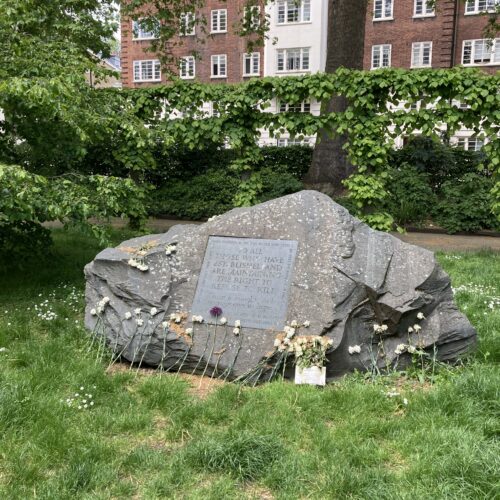

To all those who have established and who are maintaining the right to refuse to kill. Their foresight and courage give us hope.
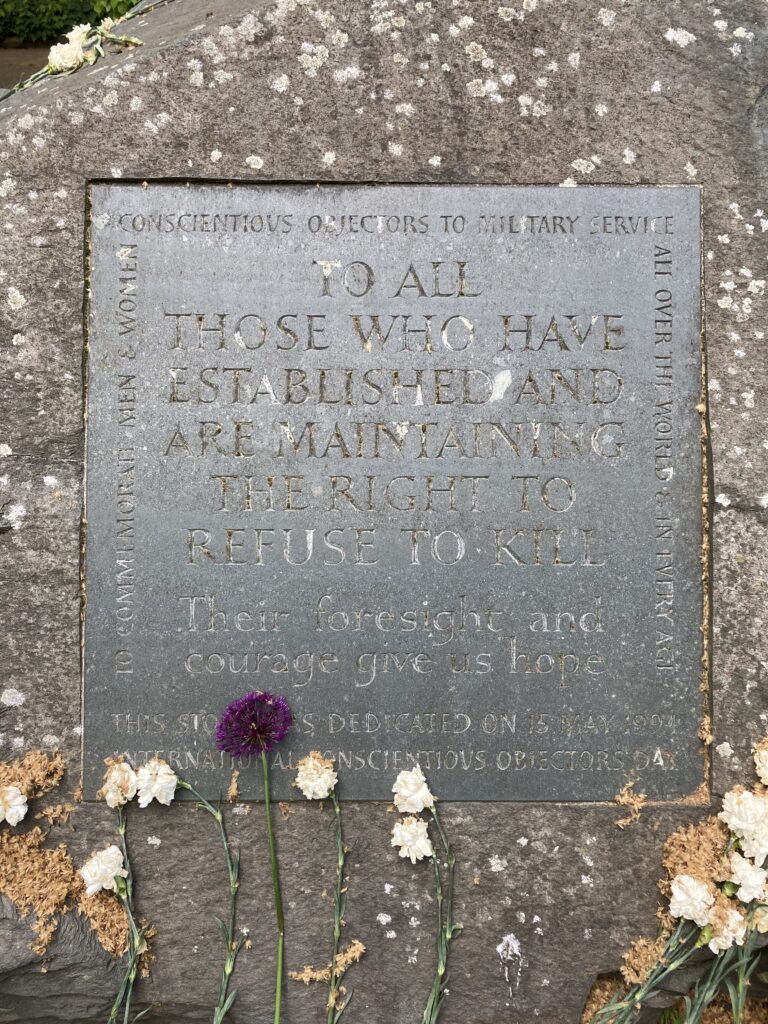
In a leafy corner of Tavistock Square in Central London sits an imposing rough-hewn slate monument, often to be found garlanded with white flowers symbolising peace. Its inscription reads:
To all those who have established and who are maintaining the right to refuse to kill. Their foresight and courage give us hope.
This is the Conscientious Objectors’ Commemorative Stone. It was placed there following a campaign by a group of humanists and the Peace Pledge Union, a pacifist organisation founded in 1934 who challenge militarism and promote peacebuilding and nonviolence.
Although it has always been somewhat contentious, there has been a long tradition of pacifism within the humanist movement in Britain. The revolutionary, Thomas Paine (1737-1809) whose writings inspired much early humanist and secularist activism, famously wrote: ‘My country is the world, and my religion is to do good.’ Prior to the First World War, the short-lived Rationalist Peace Society had been formed under the co-leadership of Hypatia Bradlaugh Bonner, while humanist intellectuals and activists had subsequently supported and contributed to a range of pacifist groups. Secularist historian David Tribe picturesquely described these in 1967 as including ‘some constructively working towards the parliament of man and federation of the world’, and ‘others wildly amateur, idealistic and impractical.’ Perhaps most famously, during the 1950s and 1960s Bertrand Russell played a prominent role in the Campaign for Nuclear Disarmament.
The Monument to Conscientious Objectors was the brainchild of Edna Mathieson, who during the 1980s was a member of Greater London Council (GLC). Mathieson’s own pacifism had been inspired by the example of her uncle, who had been an objector during the First World War. At his humanist funeral, the officiant, Bill McIlroy (1928-2013) remarked to the effect that he hoped that one day the courage of conscientious objectors would be marked by a memorial. Encouraged by McIlroy’s words, Mathieson embarked on a campaign to secure a monument which was to last over a decade. Her full account of the successful campaign is available here. With the support of the Peace Pledge Union, the monument was designed by Hugh Court, a member of Architects for Peace, who sourced the rock in Cumbria, and was given its inscription by the sculptor Paul Wehrle. It was dedicated in a ceremony on 15 May 1994.
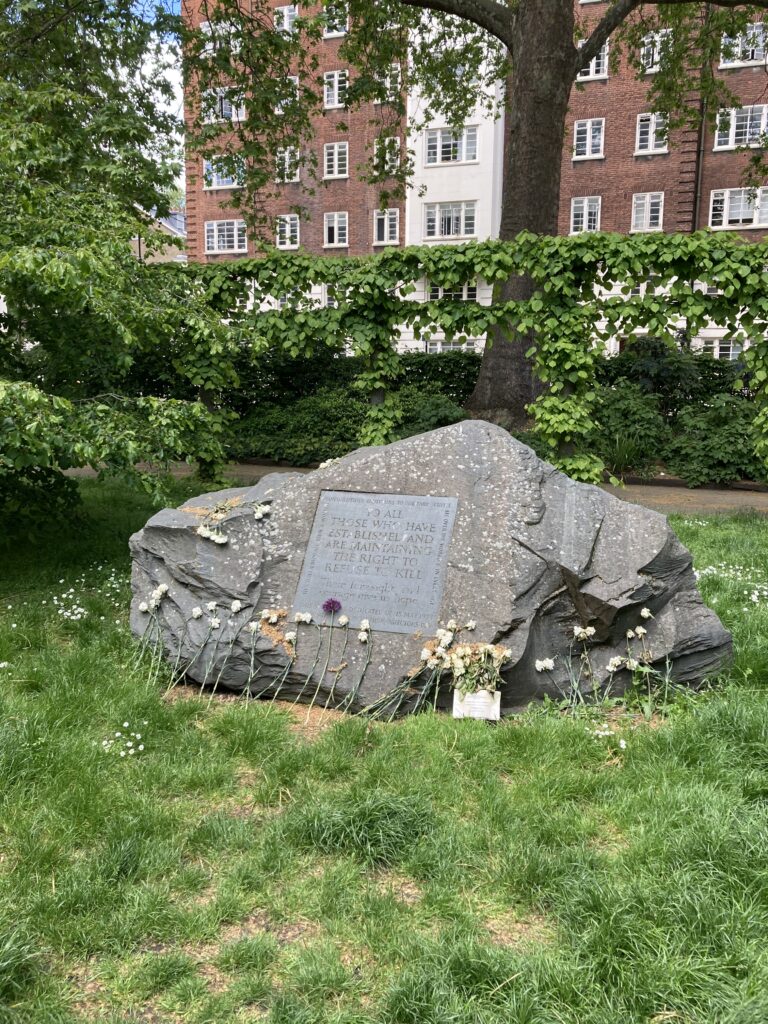
What is striking about the story of the Conscientious Objectors’ Memorial is just how closely its story has been intertwined with the humanist movement. Bill McIlroy (who appears several times as a friend and fellow campaigner in Edna’s narrative) was an émigré Irishman who had been Secretary of the National Secular Society during the 1970s, as well as sometime editor of the Freethinker magazine. Mathieson’s subsequent efforts to organise annual commemorations at the memorial were assisted by the British Humanist Association (now Humanists UK) and by Robert Ashby, who was its director during the 1990s. Meetings were held nearby at Conway Hall, home of the Conway Hall Ethical Society, and by the early 2000s at the BHA’s then office on ‘Godless’ Gower Street. Humanist leaders have often been among those who attend the Peace Pledge Union’s annual commemoration ceremony. In May 2003 – and with the deeply unpopular Iraq War underway – the BHA’s Chair, Chris Butterworth, took part in the ceremony, where the keynote address was delivered by the veteran humanist activist, Barbara Smoker – a Women’s Royal Naval Service veteran who had witnessed conflict first-hand during the Second World War. The monument is therefore a testimony not just to the courage of those who have refused military service on moral grounds but to the support given by many humanists to pacifism.
By Charlie Lynch
This article draws on research undertaken in writing an academic history of the British Humanist Movement from 1896 to the present. This book, The Humanist Movement in Modern Britain, by Callum Brown, David Nash, and Charlie Lynch, was published in 2022.
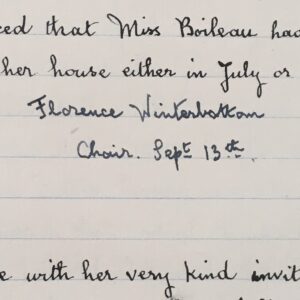
No one who came in contact with her failed to recognize in her fearlessness, honesty for the sake of honesty […]
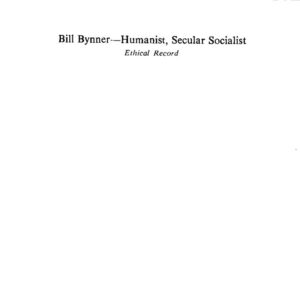
Bill Bynner was a humanist, socialist, and civil servant. As the editor of South Place Ethical Society‘s Ethical Record wrote […]
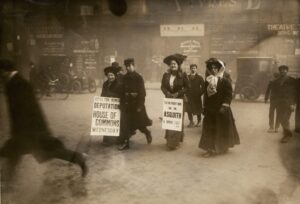
Lillie Boileau was a devoted figure within the Ethical movement, and an active part of the fight for women’s suffrage. […]
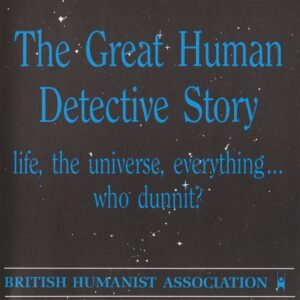
Humanism is a philosophy of life based on a concern for humanity rather than a belief in god. Humanists believe […]